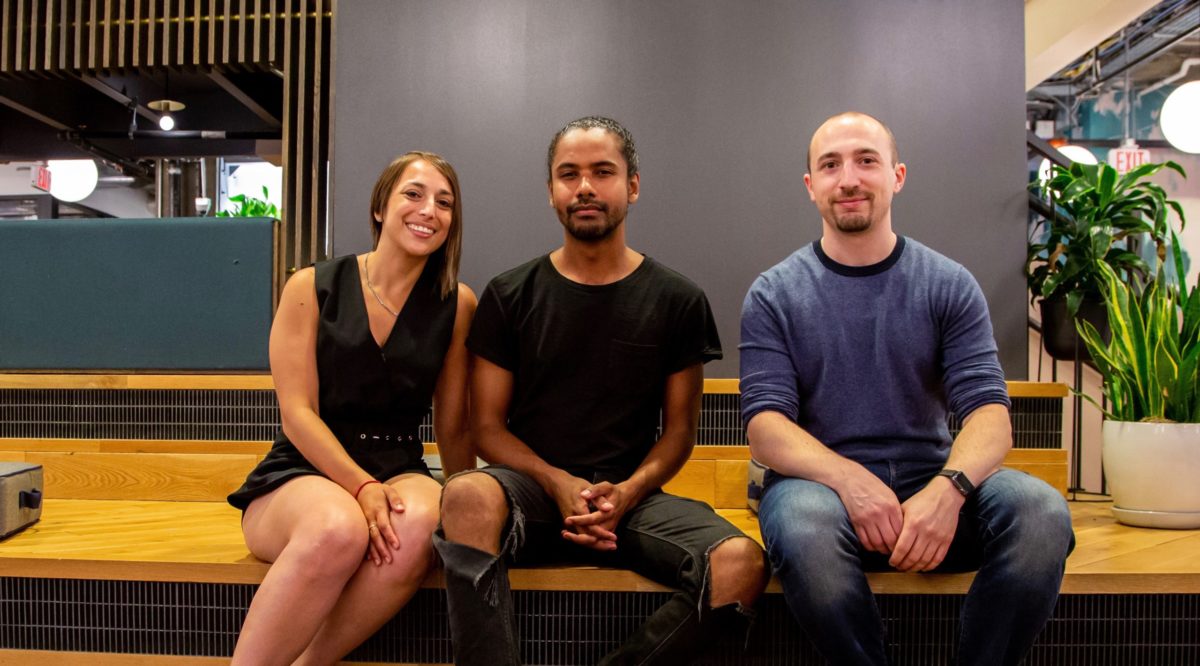We’ve heard it since March 2020: Working from home is in.
Throughout the lockdowns, vaccines and booster shot eras of the pandemic, remote work has remained a powerhouse, even in companies that never would have considered it before. And as startups and large tech companies struggle with hiring and retention, it’s remained a top perk that many continue offering.
But DC’s Meaningful Gigs has been working in the space even before the early days of the pandemic, connecting local companies to designers and developers based in Africa. Since its founding in 2019, the company has grown from its initial three cofounders to 10 employees, largely growing on the sales, marketing and engineering sides. Cofounder and COO Steph Nachemja-Bunton said the company has grown from one large enterprise customer, AARP, to 14. Meaningful Gigs has also bumped up to 2,000 designers in its network and launched a learning software, Meaningful U.
Much of Meaningful Gigs’ growth can be attributed to the rise of remote work throughout the pandemic. With its popularity over the past few years, Nachemja-Bunton said that clients have embraced not only remote workers but those who are located in other countries, continents and time zones: When the company initially started, many people were resistant to the fact that the company’s designers were located in Africa. But it’s a mindset that’s changed as of late.
“There’s more acceptance of the fact that we can not only work from home but work from anywhere,” Nachemja-Bunton told Technical.ly. “And there’s also all of these tools that people are using, technical tools and also more management tools and communication tools, to bring people closer together.”

As the acceptance of remote work grows, Nachemja-Bunton said, she sees many companies prioritizing the diversity of thought that designers from around the world can bring. The way that pros in other countries think about working through design challenges might be completely different than the way more local employees do, which can make a real difference in building. And while it might be nice to have an employee that can run into the IRL office when needed, she thinks that the new perspectives are more valuable.
“It doesn’t matter that you’re hiring somebody from your location, which is how we used to think,” Nachemja-Bunton said. “But what really matters is that we’re bringing in people from other places.”
With the boost of remote employees, and opening up the pool to even more applicants, it can be difficult for potential new hires to stand out. Nachemja-Bunton recommends that those job searching hone in on how you fit within a company’s culture, values and mission, and make sure that you’re the right fit for this specific job.
“When the work that you’re bringing in, or the skills that you have, are just at this level and you can demonstrate it and communicate that in a way that is compelling to what the needs of the employer are, then they’re able to see that story and how it’s going to actually boost the whole team,” the COO said.
As variants and boosters come and go, it’s hard to tell how 2022 will shape up in remote vs. IRL work. But for those keeping a remote team, Nachemja-Bunton encourages hiring managers and founders to expand their geographic pool for applicants.
“When you expand [the applicant pool], you literally have the entire world that you can consider as [talent] possibilities to bring in,” she said. “Then you have this ability to start to think differently and more creatively, bringing in people from different perspectives, different skill sets and even making sure that they have the level of skill set that you’re looking for.”







